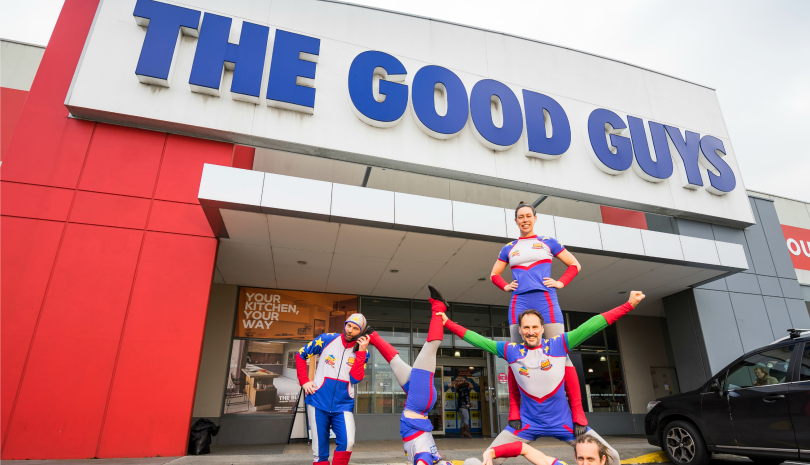The Good Guys CEO: Retail boards must understand digital investment

Retailers need a “very dynamic board, with a very balanced view about their investment in technology,” argues Michael Ford, CEO of The Good Guys.
Speaking at an Australia-Israel Chamber of Commerce event last week Ford also emphasised retailers need a balance within their teams between seasoned retailers and technology experts from Generation Y and Z.
Importantly, the executive level has to trust the specialised digital knowledge of the people beneath them, Ford said.
“Otherwise you’ll have this wonderful knowledge base on one hand and these old fossils on the other and a board that doesn’t understand either the application or the infrastructure that you are trying to invest in. Those retailers will struggle,” he said.
In a wide-ranging discussion on the role of digital disruption in retail, Ford highlighted the impact data is having on retailers.
“I think the next era for retail is going to be about data, big data and how you actuate CRM,” Ford said.
The Good Guys have two data insights teams – one that mines point of sale receipts for insights into what products and categories are performing well, which then drives merchandising plans. The other team looks at how customers shop, or why they didn’t shop with The Good Guys.
“Historically what retailers have done, both in their merchandise and assortment planning and in their budgeting, is they have built it on historical incremental growth,” Ford said. “The great benefit that retailers are deriving now and in the future, through these data insight teams – whether it be on product or whether it be on customer – they are going to be able to anticipate the needs of their customers.
“CRM is the most over-spent, over-talked about initiative in retail and often over capitalised. But I think this is about to change. Actuating what you derive from big data is going to make your CRM programs that much more effective. That’s going to be critical to growth.”
The rise of data analytics in retail is set to have a big impact on the way businesses allocate their marketing dollars. Retailers are now figuring out how much of their marketing budget to keep in conventional methods such as TV and catalogues, and how much to transfer to digital.
“We have increased our spend by 1000 per cent and I still think we are underspent in terms of taking our advertising dollars out of conventional advertising and putting it into digital. But there is no science to that,” Ford said.
A new measurement for success
Ford predicts one of the most significant changes retailers are going to see in the near future is the ability to measure customers’ like-for-like growth.
“Today most retailers recognise their productivity growth on a sales per square metre and like-for-like basis,” Ford said. “You are going to get your measurement moving away from the box that you operate out of and your labour productivity to share of wallet from an individual customer and what they generate on a year-on-year basis.”
It’s a view that’s also espoused by Sir Charlie Mayfield, chairman of the John Lewis Partnership, who believes a focus on the customer will lead to metrics such as sales per customer, as opposed to same store sales.
“The biggest challenge for any retailer today is generating greater share of wallet out of the existing customer,” Ford said. “I think the process of measurement is going to change significantly because retail has been a pretty sleepy old industry for the last 150 years and it’s really now out on the technology forefront.”
Comment Manually
You must be logged in to post a comment.

No comments